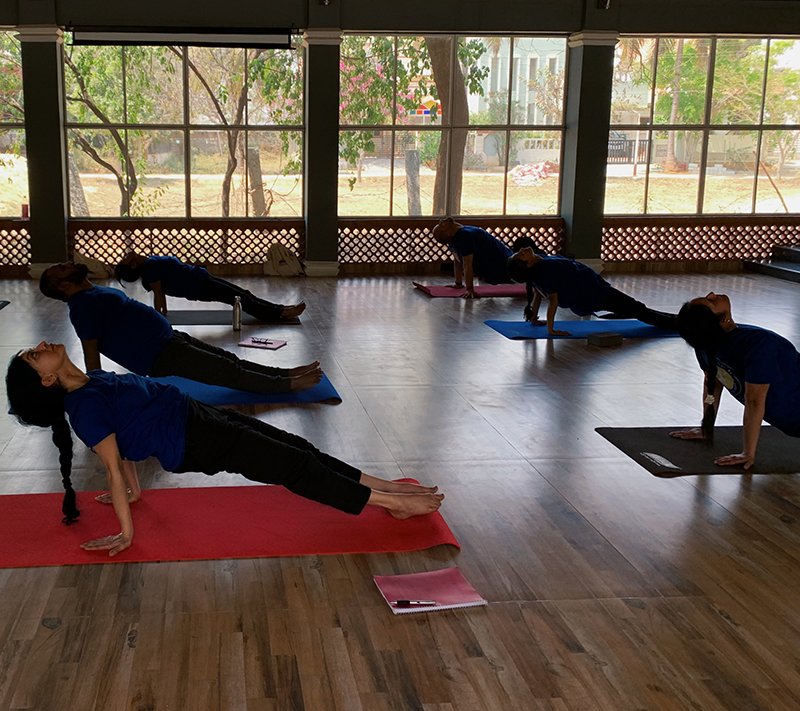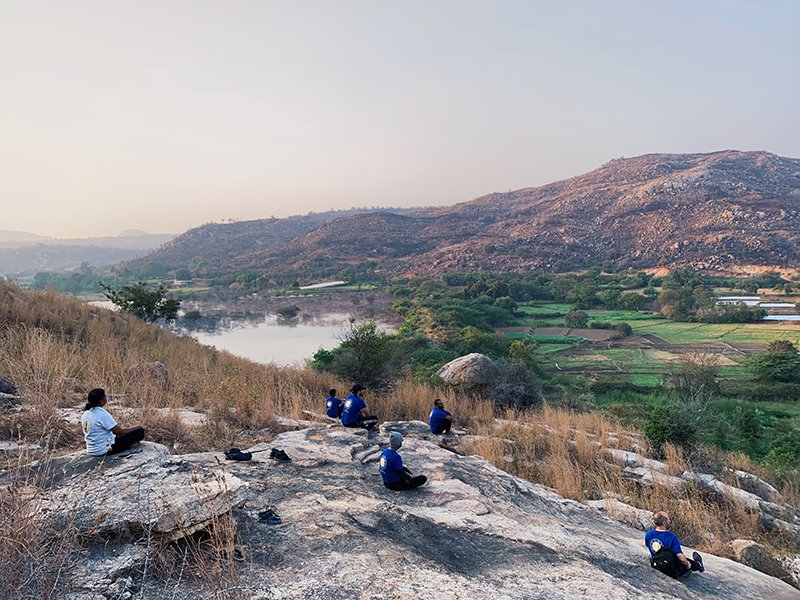Introduction
In an age of technology and information dominance, the challenges faced by today’s youth seem insurmountable. The constant bombardment of stimuli, the pressure to succeed, and the erosion of genuine connections are taking a toll on their mental and physical well-being. The question arises: can the ancient practice of yoga provide a sanctuary of balance and self-awareness for this new generation? In this article, we explore the profound impact of yoga on the youth , as they navigate the labyrinth of modernity.
Struggles of Contemporary Youth
To comprehend the transformative power of yoga in modern times, it is essential first to understand the unique challenges faced by today’s youth. These challenges, born from a rapidly changing world, include:
1. Mental health crises: The prevalence of anxiety, depression, and stress-related disorders among young people has reached alarming heights , owing to academic pressures, social media comparison, and unrealistic expectations.
2. Physical health decline: Sedentary lifestyles, poor nutrition, and a lack of exercise contribute to a generation at risk for obesity, diabetes, and cardiovascular diseases.
3. Erosion of interpersonal relationships: The rise of digital communication has led to a decline in genuine associations, as young people struggle to develop empathy, compassion, and emotional resilience.
The Transformative Power of Yoga
As yoga emphasises in mindfulness, physical well-being, and inner harmony, it offers a compelling antidote to the issues plaguing today’s youth. The impact of yoga can be analysed through three distinct dimensions:
1. Physical transformation: Yoga promotes strength, flexibility, and endurance, which are critical components of a healthy lifestyle. As young people engage in yogic practices , they cultivate a greater appreciation for their bodies and learn to prioritise their physical well-being.
2. Mental metamorphosis: Yoga’s focus on mindfulness, meditation, and breath control is instrumental in mitigating stress, anxiety, and depression. By learning to quiet their minds and remain present, young people become better equipped to cope with life’s challenges.
3. Emotional evolution: Yoga nurtures self-acceptance, self-compassion, and empathy, fostering a healthy sense of self and improved interpersonal relationships. This emotional growth empowers young people to form deeper connections with others and to navigate the complexities of human emotions.
Yoga as a Beacon of Hope
The impact of yoga on today’s youth extends far beyond the individual level, as it has the potential to create lasting, positive change within communities and society as a whole. By embracing yoga, young people contribute to a collective reawakening of ancient wisdom, and in doing so, they build a brighter future for themselves and the world at large.
1. Cultivating a compassionate society: As young people integrate the principles of yoga into their lives, they foster empathy and understanding, creating a more compassionate and harmonious society.
2. Shaping responsible global citizens: Yoga’s emphasis on environmental awareness and interconnectedness nurtures a sense of responsibility towards the planet, inspiring young people to take action against climate change and environmental degradation.
3. Fostering a culture of peace: The inner peace and emotional resilience gained through yoga practice help young people resolve conflicts and approach life with a non-violent, solutions-oriented mindset, paving the way for a more peaceful world.
Conclusion
The journey of yoga is one of self-discovery, balance, and empowerment. In a world marked by chaos and disconnection, the ancient art of yoga offers today’s youth a path to inner harmony, physical health, and emotional resilience. As we bear witness to the transformative power of this practice, we cannot help but marvel at its potential to shape the hearts.



